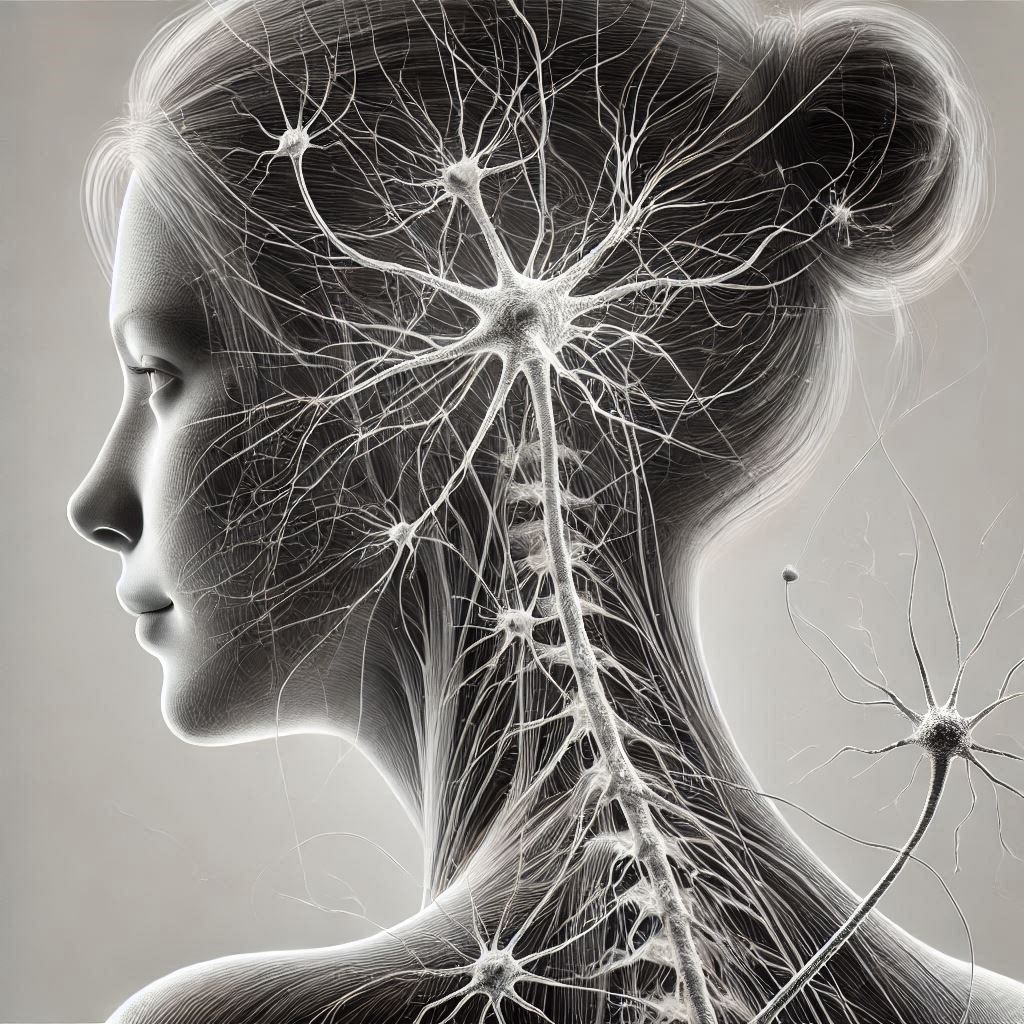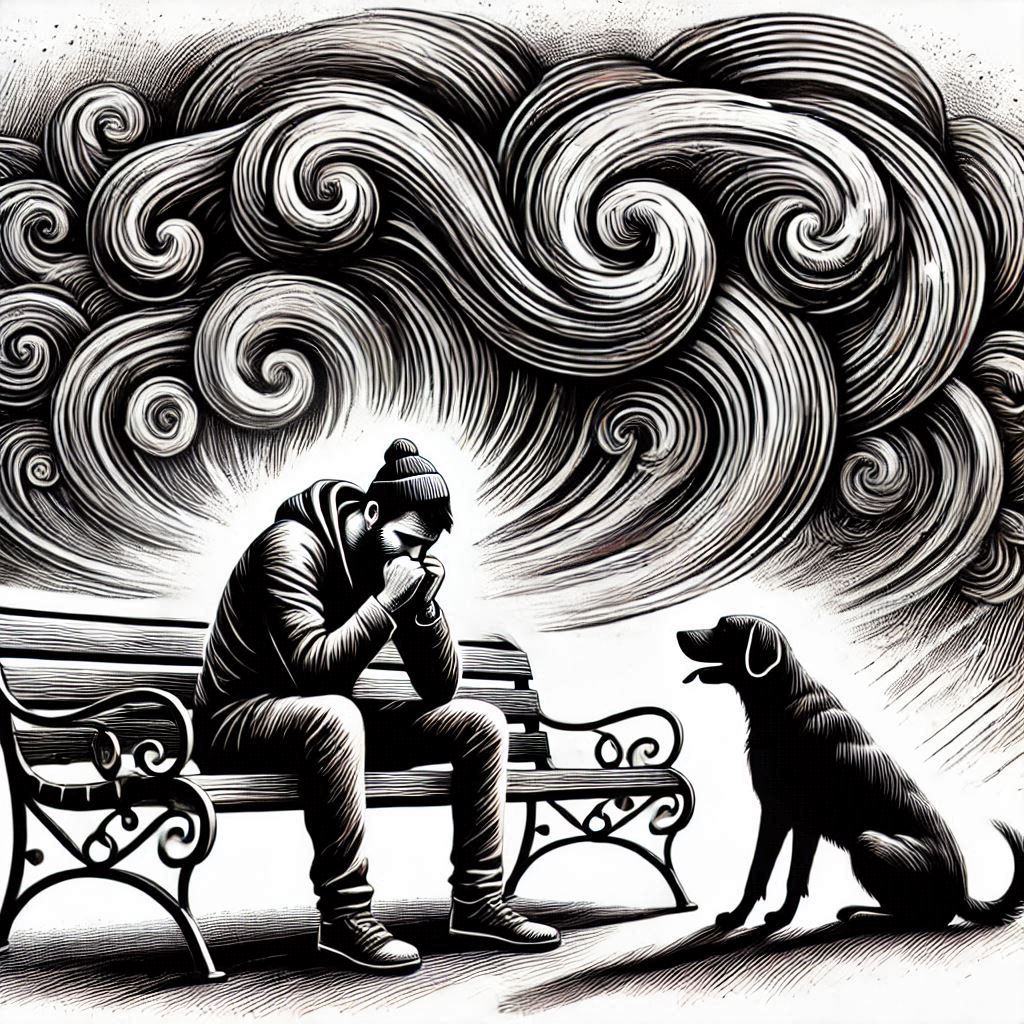Ever found yourself sweating, heart pounding, and feeling utterly overwhelmed, but unsure whether it’s a mental breakdown or a panic attack? You’re not alone. While both are intense, they differ significantly in their triggers, symptoms, and duration. A mental breakdown, a severe response to stress with a wide range of psychological effects, can disrupt your life for days or even longer. On the other hand, a panic attack is a sudden, acute bout of intense fear that typically peaks within minutes. Understanding these differences is crucial for managing both scenarios effectively, ensuring you can seek appropriate help and strategies for recovery.
Understanding Mental Breakdown and Panic Attack
A mental breakdown, often referred to as a nervous breakdown, occurs when an individual experiences overwhelming levels of stress, both emotionally and physically. This term is commonly used to describe a period of intense mental distress where the individual may find it challenging to cope with life’s demands. Symptoms of a mental breakdown include heightened anxiety, insomnia, severe emotional reactions, and an inability to function normally in daily life. It can manifest as a response to prolonged stress or trauma, leading to a state of emotional exhaustion.
Definition of Mental Breakdown
A mental breakdown is characterized by a state of acute emotional or psychological distress that can significantly impair an individual’s ability to function normally. It is often triggered by overwhelming stressors, leading to symptoms such as anxiety, depression, emotional instability, and sometimes even physical symptoms like fatigue or headaches.
Definition of Panic Attack
On the other hand, a panic attack is a sudden episode of intense fear or anxiety that triggers overwhelming physical sensations, even in the absence of real danger. During a panic attack, individuals may experience symptoms like a racing heartbeat, shortness of breath, chest pain, trembling, and a sense of impending doom. These attacks can be brief but extremely distressing, often causing individuals to feel out of control.
Key Differences Between Mental Breakdown and Panic Attack
The primary distinction between a mental breakdown and a panic attack lies in their nature and duration. A mental breakdown typically develops over time due to prolonged stress and emotional strain, resulting in a state of emotional and physical exhaustion. In contrast, a panic attack is a sudden and intense episode of fear that arises unpredictably and is primarily characterized by its acute physical symptoms.
When comparing the two, it’s essential to recognize that while a mental breakdown is often a reflection of accumulated stress and emotional turmoil, a panic attack is more immediate and centered on overwhelming feelings of fear and physical discomfort. Both conditions require attention and appropriate support, but understanding the differences can help individuals and their support systems respond effectively to each situation.
For more information on mental breakdowns and panic attacks, you can visit reputable sources like Mayo Clinic and WebMD.
Causes and Triggers
Stress, trauma, and genetic predispositions can all contribute to mental health issues. Understanding the causes and triggers of mental breakdowns and panic attacks is crucial in managing and preventing these overwhelming experiences.
Causes of Mental Breakdown
Mental breakdowns, often associated with excessive stress, may result from various factors. They can stem from prolonged periods of high stress, overwhelming life events, unresolved emotional struggles, or underlying mental health conditions. An individual’s coping mechanisms, resilience levels, and support systems play key roles in their susceptibility to a mental breakdown. Seeking professional help and practicing self-care are essential in addressing these causes effectively.
Triggers of Panic Attack
Panic attacks are intense episodes of fear and anxiety that can manifest unexpectedly. Triggers for panic attacks vary among individuals but commonly include high levels of stress, traumatic experiences, phobias, or even certain substances like caffeine. Understanding personal triggers and employing coping strategies such as mindfulness, deep breathing, or seeking therapy can help manage and reduce the frequency of panic attacks.
For more in-depth information on the causes of mental breakdowns, you can visit Healthdirect or Medical News Today. To explore triggers of panic attacks further, check out resources from Mayo Clinic or Wellness Road Psychology.
Understanding the underlying causes and triggers of these mental health challenges is a significant step towards managing and improving one’s mental well-being.
Symptoms and Signs
People experiencing a mental breakdown may exhibit various symptoms indicating severe mental distress. These signs can manifest differently in individuals, but common indicators include overwhelming feelings of sadness, hopelessness, or worry. Irritability, frequent outbursts, and persistent feelings of frustration may also be noticeable. Physical manifestations such as changes in sleep patterns, eating habits, and personal hygiene could occur. Individuals facing a mental breakdown might withdraw from social activities, struggle to perform daily tasks, or express a sense of helplessness. Anxiety, insomnia, and panic attacks may accompany these symptoms, emphasizing the need for timely intervention.
Symptoms of a Mental Breakdown
- Anxiety and Depression: Overwhelming feelings of sadness and hopelessness.
- Brain Fog: Difficulty concentrating or focusing on tasks.
- Changes in Sleep Patterns: Disrupted sleep or irregular sleep cycles.
- Fatigue: Persistent tiredness or feeling drained of energy.
- Feeling Helpless: A sense of hopelessness or inability to cope.
On the other hand, symptoms of a panic attack often present as sudden and intense episodes of fear or anxiety. Individuals may experience a profound sense of impending doom, fear of losing control, or even fear of death. Physical sensations during a panic attack can include a rapid heart rate, profuse sweating, trembling or shaking, and feelings of weakness or dizziness. Moreover, tingling sensations, chest pain, shortness of breath, nausea, and chills may accompany these episodes. It’s crucial to recognize these symptoms to differentiate between a panic attack and other mental health conditions, seeking appropriate support and treatment when needed.
Symptoms of a Panic Attack
- Sense of Impending Doom: Overwhelming feeling of imminent threat or danger.
- Fear of Loss of Control: Inability to manage or control the situation.
- Physical Symptoms: Rapid heart rate, sweating, trembling, and dizziness.
- Breathing Difficulty: Shortness of breath or chest tightness.
- Weakness and Tingling: Sensations of weakness, tingling, or numbness.
Understanding these distinct symptoms can help individuals and caregivers identify the appropriate interventions and support mechanisms to manage mental health challenges effectively.
Duration and Recovery
When it comes to understanding the duration and recovery process of mental breakdowns versus panic attacks, it is essential to recognize the distinct characteristics of each. Let’s delve into the timelines and healing approaches for these two mental health challenges.
Duration of a Mental Breakdown
A mental breakdown, also known as a nervous breakdown, is a severe mental health crisis that can be triggered by overwhelming stress or trauma. The duration of a mental breakdown can vary significantly from person to person. In some cases, a mental breakdown may last for a few hours, while in more severe instances, it can persist for weeks or even longer. The key factor in determining the duration of a mental breakdown is the individual’s ability to seek proper support and treatment. Recovery from a mental breakdown is a gradual process that often involves therapy, medication, self-care practices, and a strong support network.
Duration of a Panic Attack
On the other hand, a panic attack is a sudden episode of intense fear or discomfort that peaks within minutes. Unlike mental breakdowns, panic attacks are usually short-lived and typically last for about 10 to 30 minutes. However, the effects of a panic attack, such as lingering anxiety or dread, can persist for a more extended period after the initial attack has subsided. It is crucial for individuals experiencing panic attacks to understand that while the duration of the attack itself is relatively short, the emotional impact may require ongoing management and support.
Recovery Process for Mental Breakdown vs. Panic Attack
The recovery process for mental breakdowns and panic attacks differs based on the underlying causes and individual circumstances. Recovery from a mental breakdown often involves intensive therapy, medication, lifestyle changes, and consistent support from mental health professionals and loved ones. It is a gradual journey that focuses on building resilience, coping mechanisms, and addressing the root causes of the breakdown.
In contrast, recovering from a panic attack may involve learning stress management techniques, cognitive-behavioral therapy (CBT), and relaxation exercises to prevent future attacks. Individuals experiencing panic attacks can benefit from creating a personalized plan with their mental health providers to manage triggers, reduce anxiety, and cultivate a sense of empowerment over their mental well-being.
Navigating the duration and recovery process of mental breakdowns and panic attacks requires patience, self-awareness, and a proactive approach to mental health care. By seeking timely intervention, developing coping strategies, and building a strong support system, individuals can embark on a path towards healing and resilience in the face of mental health challenges.
Seeking Help and Treatment
When experiencing a mental breakdown or a panic attack, seeking professional help is crucial in managing and overcoming these challenges. Here’s how professional help can assist individuals dealing with mental breakdowns and panic attacks:
Professional Help for Mental Breakdown
- Counseling and Therapy: Mental breakdowns often stem from overwhelming stress or emotional turmoil. Professional counselors and therapists can provide a safe space to talk about your feelings, explore coping mechanisms, and work through underlying issues contributing to the breakdown.
- Medication Management: In some cases, medication may be prescribed to help alleviate symptoms associated with a mental breakdown. Psychiatrists can assess the need for medication and monitor its effectiveness while ensuring proper dosages.
- Support Groups: Joining a support group for individuals experiencing mental breakdowns can offer a sense of community and understanding. Sharing experiences with others who can relate can provide comfort and reassurance during difficult times.
Professional Help for Panic Attack
- Psychotherapy: Psychotherapy, commonly known as talk therapy, is an effective treatment option for panic attacks. Therapists use various techniques to help individuals understand and manage their panic symptoms, such as cognitive-behavioral therapy (CBT) to address thought patterns and behaviors.
- Medication Options: In some cases, healthcare providers may recommend medications to help alleviate panic attack symptoms. These medications can include antidepressants, anti-anxiety drugs, or beta-blockers to reduce physical symptoms of panic attacks.
- Coping Strategies: Professionals can teach individuals coping strategies to manage and reduce the frequency of panic attacks. Techniques such as deep breathing exercises, mindfulness practices, and progressive muscle relaxation can help individuals regain control during episodes of heightened anxiety.
Seeking help from mental health professionals for both mental breakdowns and panic attacks is a proactive step towards healing and recovery. Remember, you are not alone in your journey toward better mental health, and reaching out for support is a sign of strength and resilience.
For additional resources on mental health support and treatment, organizations like SAMHSA’s National Helpline and the National Institute of Mental Health offer valuable assistance and information.
Prevention Strategies
Mental breakdowns and panic attacks can be debilitating experiences, but there are strategies to help prevent them. By adopting healthy habits and coping mechanisms, you can reduce the likelihood of these challenging episodes.
Preventing Mental Breakdown
- Healthy Diet: Following a balanced diet rich in nutrients can boost your energy levels and support your overall well-being, reducing the risk of mental breakdowns.
- Mindful Practices: Engaging in mindfulness activities like meditation or yoga can help manage stress, enhance self-awareness, and build resilience against overwhelming situations.
- Regular Exercise: Physical activity is not just beneficial for your body but also for your mental health. Exercising releases endorphins, the body’s natural stress reliever, helping you stay emotionally balanced.
- Seek Support: Building a strong support system of friends, family, or mental health professionals can provide a safety net during challenging times, preventing isolation and offering guidance.
- Limit Stimulating Substances: Cutting back on caffeine and alcohol intake can help regulate your mood and improve sleep quality, reducing the risk of triggers that may lead to a mental breakdown.
For more information on preventing mental breakdown, you can refer to resources like Healthline – Symptoms of a Nervous (Mental) Breakdown and Health Direct – Nervous breakdown – symptoms, treatments, and causes.
Preventing Panic Attack
- Coping Strategies: Learning relaxation techniques such as deep breathing exercises, progressive muscle relaxation, or visualization can help manage anxiety and prevent the escalation of panic attacks.
- Identify Triggers: Understanding your triggers, whether they are specific situations or thoughts, can empower you to proactively address and avoid potential panic-inducing scenarios.
- Regular Self-Care: Prioritize self-care activities that nurture your mental well-being, such as adequate sleep, healthy nutrition, and engaging in hobbies or activities that bring you joy.
- Professional Help: Seeking therapy or counseling can equip you with tools to navigate anxious moments and develop coping mechanisms tailored to your individual needs.
- Stay Active: Remaining engaged in daily activities, maintaining routines, and staying connected with supportive individuals can create a sense of stability and security, reducing the likelihood of panic attacks.
For additional insights on preventing panic attacks, you can explore resources like WebMD – How Can I Prevent Panic Attacks? and NHS Inform – How to deal with panic and anxiety.
Conclusion
Understanding the differences between a mental breakdown and a panic attack is crucial for effective self-care and seeking appropriate help when needed. While both experiences can be intensely overwhelming, recognizing their distinct characteristics helps in managing them more effectively. Mental breakdowns are typically characterized by a prolonged period of severe stress and inability to function normally in daily life. On the other hand, panic attacks are acute episodes, marked by intense physical and emotional symptoms that peak rapidly.
Managing both conditions requires an awareness of one’s limits and triggers, along with proactive mental health practices. Whether it’s seeking therapy, adopting stress-reduction techniques, or simply talking to someone about your feelings, taking steps to address these issues is vital. Remember, reaching out for help is a sign of strength, not weakness, and is crucial in maintaining mental well-being.








